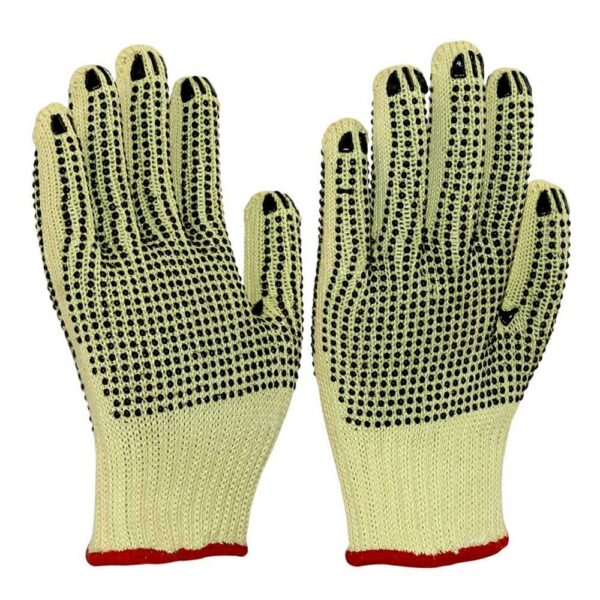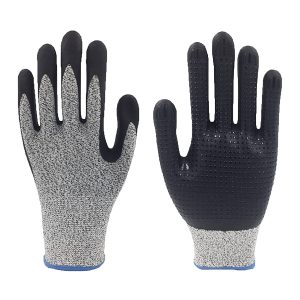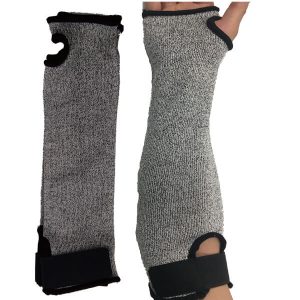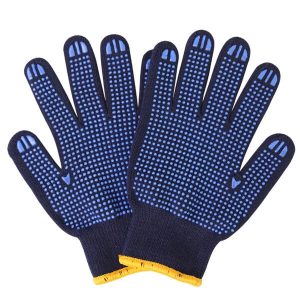In the vast farmland, you are the agricultural producer who works hard day after day, and the agricultural work gloves are your most intimate partner and guardian. In day-to-day labor, your hands are the most direct contact with the land and crops and the most vulnerable to injury. To protect your hands and improve the efficiency of agricultural production, agricultural work gloves have become your indispensable equipment.
First, when will you use farm gloves?
In agricultural production, gloves are used in a variety of scenarios. Whether it is spring plowing, summer planting, fall harvesting, or winter storage, your hands face different challenges.
It is advisable to use farm gloves when performing the following tasks:
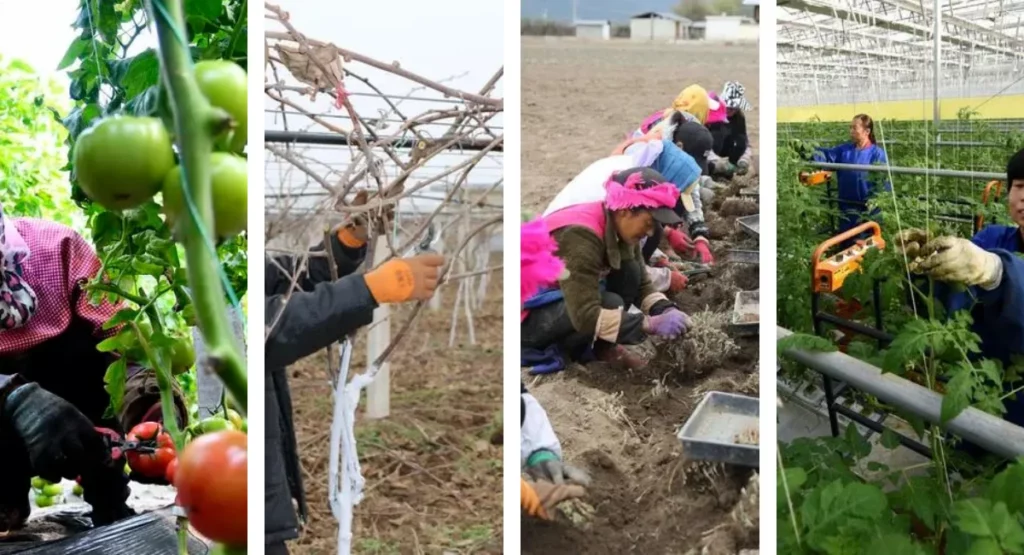
- Plowing and seeding: Plowing and seeding require the use of hoes, plows, and other farm tools to turn the soil, seeding machines, or hand seeding. During these operations, hands can easily come into contact with sharp farm tools and rough ground, which can result in cuts or abrasions if you are not careful. Agricultural work gloves can provide the necessary protection and reduce the risk of hand injuries.
- Weeding and pruning: Weeding and pruning are essential to the growing process. These operations require fine hand movements and long hours of work. Agricultural work gloves can provide good grip and comfort, reducing the risk of hand fatigue and blisters.
- Fertilizing and spraying: Fertilizing and spraying are common agricultural operations to ensure healthy crop growth. During these operations, hands are easily exposed to fertilizers, pesticides, and other harmful substances. Agricultural work gloves can isolate these harmful substances from direct contact with the hands and protect the health of the skin on the hands.
- Harvesting and processing: During the harvest season, you will need to pick, transport, store, and process crops. During these operations, the hands are exposed to risks such as piercing by sharp objects and being struck by heavy objects. Agricultural work gloves can provide comprehensive protection to keep your hands safe and healthy.
In addition to the above activities that require you to wear gloves to protect your hands, you should also take appropriate hand protection measures when performing the following related activities:
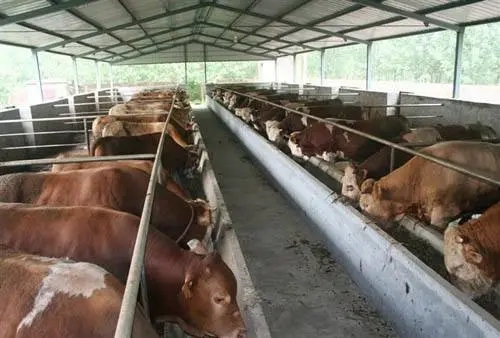
- Animal husbandry: In animal husbandry, agricultural gloves can prevent various diseases that can be transmitted by direct contact with animals, such as brucellosis. At the same time, gloves can reduce potential exposure to contaminants during the handling of animal manure, cleaning of barns, and other processes.
- Aquaculture: In aquaculture, agricultural gloves can protect hands from punctures and scratches from aquatic plants and animals, as well as from contaminants and microorganisms that may come into contact when handling aquaculture water.
- Agro-processing: In agro-processing, agricultural gloves protect hands from mechanical equipment and also prevent allergic reactions that may be caused by contact with agricultural products. For example, when sorting fruit, wearing rubberized or latex gloves can protect the hands; when handling seafood and aquatic products, using anti-slip and anti-puncture gloves (such as multi-function nitrile gloves) can provide better hand protection.
Second, Why use agricultural gloves?
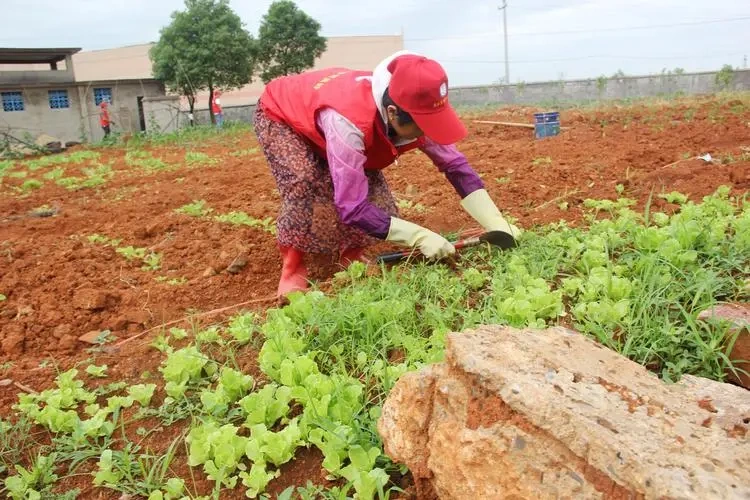
- Hand safety: The risk of hand injury is ever-present in agricultural production. Agricultural work gloves can provide the necessary protection to reduce the risk of cuts, punctures, impacts, etc. to keep your hands safe and healthy.
- Improve work efficiency: Agricultural work gloves can provide good grip and comfort, so you can work more easily. Meanwhile, the non-slip design of the gloves can reduce hand slipping and mistakes, and improve work efficiency and accuracy.
- Protect hand health: Long working hours and adverse weather conditions can lead to hand fatigue, blistering, frostbite, and other problems. Agricultural work gloves can reduce hand fatigue and wear and tear, and maintain the health and integrity of the hand skin.
- Insulate against harmful substances: In agricultural production, you may need to come into contact with fertilizers, pesticides, oil, and other harmful substances. Agricultural work gloves can isolate these harmful substances from direct contact with your hands, protecting your hands from injury.
Third, how to choose agricultural work gloves?
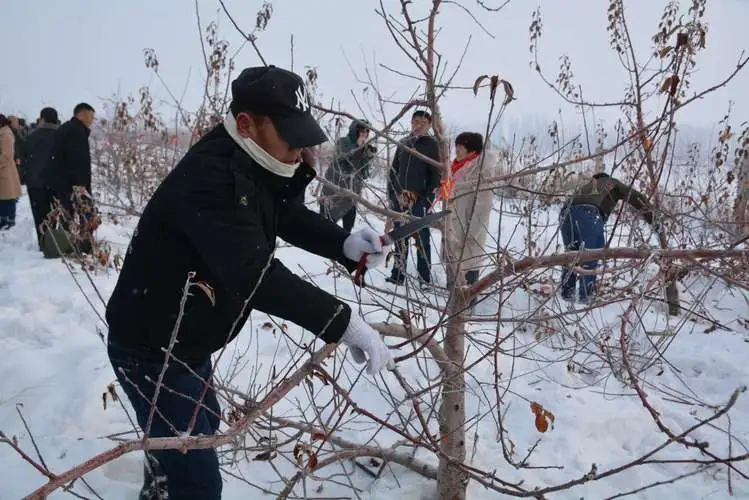
To meet the diverse needs of agricultural producers, there are many types of agricultural work gloves to choose from.
Here are some common types of agricultural work gloves and their features:
- Cut-resistant gloves: These gloves are made of high-strength fiber materials and have excellent cut-resistant properties. Cut-resistant gloves can effectively reduce the risk of hand cuts in agricultural production, especially when using sharp agricultural tools. It is recommended that you wear these gloves when performing operations such as pruning branches, cutting straws, especially machinery with rotating blades or sharp parts.
- Anti-impact gloves: Anti-impact gloves incorporate cushioning materials in key areas such as the palms and knuckles, which can effectively reduce impact and pressure on the hands. For those of you who often carry heavy loads or operate agricultural machinery, impact-resistant gloves are undoubtedly a powerful assistant in protecting your hands.
- Anti-puncture gloves: In agricultural production, sometimes you need to deal with thorny crops or waste, such as thorns, wire, etc… Anti-puncture gloves are made of special materials that can effectively prevent sharp objects from piercing the gloves and protect the hands from injury. It is recommended to wear puncture-resistant gloves when handling these barbed objects.
- Latex dipped gloves: Latex dipped gloves have excellent abrasion resistance, slip resistance, and breathability, suitable for use in wet or greasy environments. In agricultural production, such as digging, planting, and other scenarios that require hands to come into contact with soil, fertilizer, etc., latex-dipped gloves can provide good grip and hand protection.
- Nitrile-dipped gloves: Nitrile-dipped gloves also have excellent abrasion resistance, slip resistance, and chemical protection. Compared with latex-dipped gloves, nitrile-dipped gloves provide better protection against oils, solvents, and other harmful chemicals. If you need to come into contact with these harmful substances in agricultural production, nitrile-dipped gloves will be your choice.
- PVC dipped gloves: with good abrasion resistance, non-slip, chemical resistance, and waterproof performance, when you are engaged in gardening or planting work, pesticide and fertilizer application, animal husbandry and breeding work, contact with animals, cleaning feces, handling feed and other tasks that can easily lead to hand contact with wet, dirty or corrosive environment.
In short, different work environments are suitable for different types of work gloves, so if you are involved in agricultural production, it’s not about which work gloves are better, but rather choosing the right gloves for you based on your work environment and the tools, objects and mechanical equipment you come into contact with.
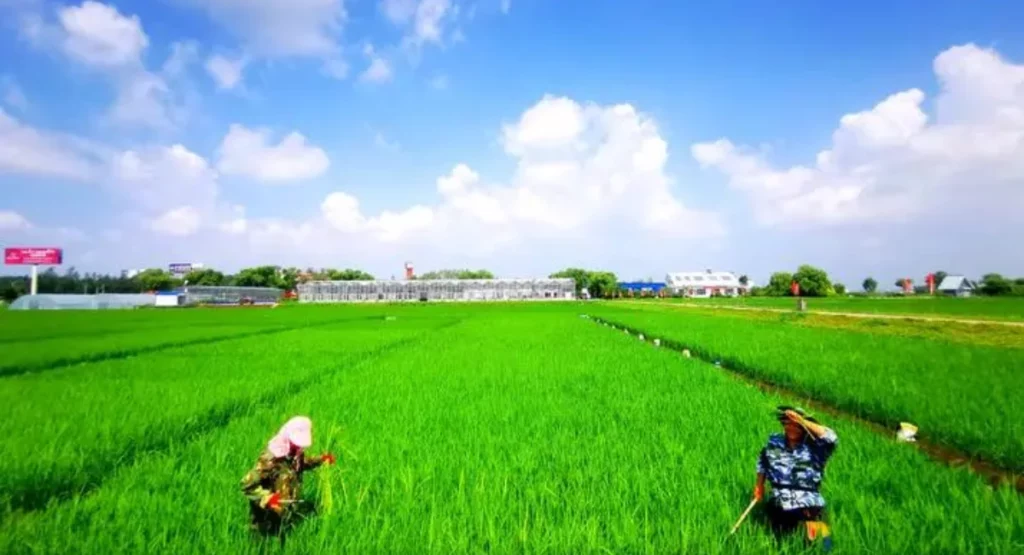
Agricultural work gloves are the right hand and guardian of agricultural producers. They not only protect your hands from injury and aggression but also improve work efficiency and hand comfort. In agricultural production, it is essential to choose a suitable pair of agricultural work gloves. May your hands wearing agricultural work gloves bring more bountiful harvests and joy in your future agricultural production.

